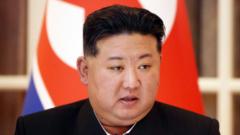In a significant update coinciding with the NATO summit in The Hague, the United Kingdom has announced plans to purchase 12 F-35A stealth fighter-bombers, which will restore Britain’s ability to deliver nuclear weapons from air platforms for the first time since the Cold War. The new aircraft, capable of carrying both conventional and nuclear payloads, will strengthen the country’s nuclear deterrent and broaden its military capabilities in response to emerging global threats.
Currently, the U.K. possesses only one nuclear delivery system—Trident submarines outfitted to launch cruise missiles. The introduction of the F-35A jets will allow Britain to join France in modernizing air-delivered nuclear capabilities, enhancing its strategic posture within NATO. The British government described this initiative as “the biggest strengthening of the U.K.’s nuclear posture in a generation,” emphasizing its importance amid growing uncertainty surrounding U.S. nuclear commitments to European defense, particularly in light of potential Russian aggressions.
Moreover, alongside this procurement, Britain will engage in NATO’s airborne nuclear mission, wherein allied aircraft will be equipped with U.S. B61 bombs stationed in Europe. This partnership further solidifies Britain's role within NATO, where seven member states, including Germany and Italy, maintain dual-capable aircraft that can also be armed with American nuclear warheads.
It is noteworthy that while Britain already operates F-35B jets suited for aircraft carriers, these do not have the capability to carry nuclear weaponry. The recent developments highlight a critical transition in the U.K.'s military strategy, responding to evolving global security dynamics and reinforcing its commitments to NATO amidst various geopolitical challenges.
Currently, the U.K. possesses only one nuclear delivery system—Trident submarines outfitted to launch cruise missiles. The introduction of the F-35A jets will allow Britain to join France in modernizing air-delivered nuclear capabilities, enhancing its strategic posture within NATO. The British government described this initiative as “the biggest strengthening of the U.K.’s nuclear posture in a generation,” emphasizing its importance amid growing uncertainty surrounding U.S. nuclear commitments to European defense, particularly in light of potential Russian aggressions.
Moreover, alongside this procurement, Britain will engage in NATO’s airborne nuclear mission, wherein allied aircraft will be equipped with U.S. B61 bombs stationed in Europe. This partnership further solidifies Britain's role within NATO, where seven member states, including Germany and Italy, maintain dual-capable aircraft that can also be armed with American nuclear warheads.
It is noteworthy that while Britain already operates F-35B jets suited for aircraft carriers, these do not have the capability to carry nuclear weaponry. The recent developments highlight a critical transition in the U.K.'s military strategy, responding to evolving global security dynamics and reinforcing its commitments to NATO amidst various geopolitical challenges.





















